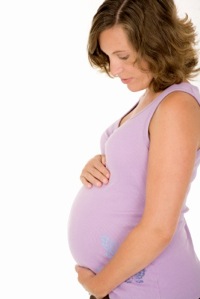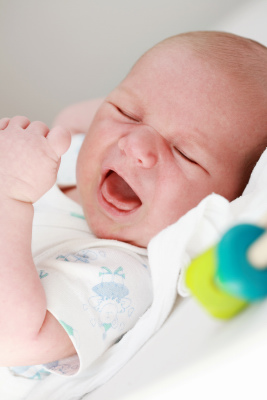Why pregnancy can trigger Hashimoto’s hypothyroidism and other autoimmune diseases

Some women find they end their pregnancy with not only a new baby but a new hypothyroid condition as well. That’s because normal immune shifts during pregnancy can trigger an autoimmune disease such as Hashimoto’s hypothyroidism, depending on genetics and other predisposing factors.
The immune system can be looked as having two primary roles, one that reacts immediately to an invader (such as pus surrounding a splinter), and one that reacts later to produce antibodies (such as to build immunity to a virus). The part of the immune system that reacts immediately is TH-1 while the delayed response is TH-2.
When one of these arms of the immune system becomes overly dominant it can trigger an autoimmune disease such as Hashimoto’s disease. Researchers are increasingly finding factors that lead to immune imbalance and trigger autoimmune diseases. They can include not only a genetic predisposition, but also food sensitivities (gluten and dairy being the most common offenders), environmental chemicals (such as those found in plastics), leaky gut, viral or bacterial infections, brain injury or degeneration, and, when a woman’s immune system is already likely at the tipping point, pregnancy.
How pregnancy can trigger Hashimoto’s and other autoimmune diseases
Pregnancy and the postpartum period naturally polarizes the immune system. In the third trimester the TH-2 immune response is dominant. Postpartum the TH-1 immune reaction is stronger. If a genetically predisposed woman goes into pregnancy with an existing immune imbalance, these natural immune shifts could trigger Hashimoto’s or other autoimmune diseases.
For 90 percent of Americans with hypothyroidism, Hashimoto’s, an autoimmune disease in which the immune system attacks and destroys the thyroid gland, is the cause.
Pregnancy and hypothyroidism
Pregnancy can also trigger hypothyroid symptoms that are not autoimmune. A common cause of low thyroid function is chronic stress. Common stressors include leaky gut and gut infections, food intolerances, blood sugar imbalances (hypoglycemia or insulin resistance), and hormonal imbalances. These stressors can depress the pituitary gland in the brain. The pituitary gland controls hormone function in the body.
When this happens the pituitary fails to signal the thyroid to produce enough thyroid hormone. For many women this manifests not only as low thyroid function, but also postpartum depression.
Because so many women enter pregnancy dealing with immune imbalances and chronic stress, the increased demands of pregnancy overwhelm the body, which can lead to hypothyroidism. Ideally, a woman will address health and immune imbalances before conceiving to reduce her risk of hypothyroidism.
A preconception health overhaul may also lower the risk of her infant developing eczema, asthma, food allergies, and even autism, which has been found to be caused by brain autoimmunity in many cases. When the mother’s immune system is healthy and balanced, there’s a stronger possibility her baby’s will be too.
Labels: Hashimoto's, hypothyroidism, pregnancy


